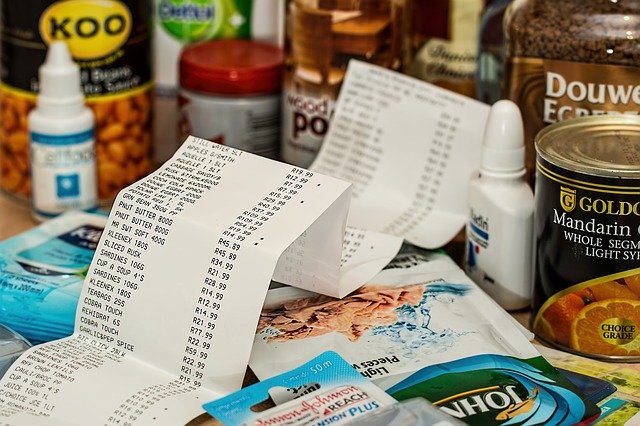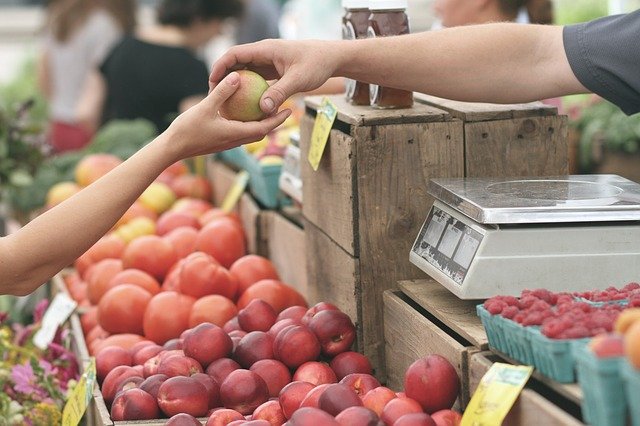Everyone needs to work a bit harder to make their dollar go further and now stores’ sales circulars are lacking the amazing deals they once had. It’s such a struggle to keep up with rising prices, especially on something as essential as food! The good news is that sales are really only one way you can save money on food. There are many other great ways to find deals on food to make your food budget go further.

Why sales promotions may be limited in the stores
As prices continue to rise, retailers often struggle to keep up with providing sales. This is because many sales promotions you find in the store are actually products the store takes at a loss to encourage shoppers to stop in and shop with them.
I remember a YouTube video wherein they questioned how can Costco possibly earn any profit from selling their fully cooked 3lbs rotisserie chickens at only $4.99. It’s easily the cheapest rotisserie chicken on the market, even cheaper than the uncooked chickens which they’re also selling.
In fact, according to Costco’s chief financial officer,” the retailer loses between $30 and $40 million a year on the chickens.”
Well, turns out, this deal is to attract more customers to come to their store. If you go there to buy the roast chicken, which is located at the end of the store, you’ll most likely buy other things too.
But because stores are already taking a bit of a hit to try and buffer rising costs for customers to encourage loyalty, they’re producing fewer big sales that can catch your eye.

How to find deals without sales promotions
The good news is that even when you’re struggling to find food deals and other bargains in the sales ads, there are other great ways to help lower your family’s food cost and everyday essentials. Yes, it takes a bit more work but it’s well worth it!
Compare bulk prices
So while food deals are hard to come by, one of the best way to still save money is to compare bulk prices with those who already buy in large quantities. Think of anyone you know who have big families or those groups who are known to feed large crowds like churches or charity organizations. You can probably take advantage of the same deals that may be happening at your local grocery store, warehouse club or farmer’s market.
Many brands also offer bulk packages for everyday items. Check your local shops if you can buy bulk packages straight from the grocery store shelves, or by joining the retailer’s club.
Consider the packaging of items as well when it comes to prices. While a smaller package on sale can seem cheaper, bulk items use less packaging materials and with lower shipping costs, these savings on the companies can get passed on to the customer.
To figure out if the price for your groceries will go up or down when they’re in bags instead of boxes, compare the cost of the product broken down by unit. To find the unit cost divide the price of the package by the number of servings, pounds, or ounces available in the package.
The best way to find out if a bulk deal is worth the price, try checking with other stores nearby first before making any major decisions about which option is better based off overall cost effectiveness alone!

Join a co-op
Group buying websites or Co-ops can help you save money when you need specific supplies such as groceries!
This is when companies allow people to buy large amounts of food at once, like when you purchase a deal on something like a whole cow, and then split the cost by shares. This is ideal for those who don’t have the means or resources necessary to buy in bulk, but needs the bargain price of a bulk-buy.
Usually on these types of sites, the users fill out an order form with their choices and then wait until the products are ready before shipping them off. This makes sure everyone gets what they want without having too much excess inventory sitting around and taking up space (not mentioning how expensive storing things get).
Check the clearance section
Keep an eye out for a clearance section at the grocery store. While stores are holding fewer sales, it will be more common to find expensive items on clearance when they hit the end of their shelf life.
You’ll see clearance selections mostly in the pantry goods and produce aisle. There may be stickers on individual packages in the meat section for discounted meat that’s been in the freezer for far too long.
I recommend checking near expiration dates or buy back days if there’s any doubt about how long something has been sitting on store shelves before grabbing it.
Oh, and this is probably one of the most confusing things about buying food. You might think that a best-before date means an expiration or sell by month, but it doesn’t! It just means that the product’s quality was at its peak and you can enjoy it without worrying about any possible health hazards involved in consuming these items after this point
The key thing to remember with food products like spices or other ingredients is that it might be shelf stable but it can still have a use by/after X amount ot time restrictions on them (e..g., “Best if Used By”).
A lot people don’t realize this – so make sure not to confuse them by using “expired” on something with still good left in its container. It will also come in handy if you know some food preservation techniques to store your bargain buys for longer.

Shop around
Shopping around for deals is a great way to save money on food for your family. With gas prices you may not want to go from store to store looking at prices on everything that is available.
Having a good shopping plan, research on what items are on clearance for what store, or find out which ones have better overall value than others so you can purchase more often!
Doing this will allow you to visit multiple stores and get everything you need all in one trip. This will also help you save money by knowing which clearance items or less popular brand names will be available to grab which may otherwise sell out before they’re priced lower than what people expect them too!
Keep a price list
Some people may think that keeping price lists are outdated and not relevant to their lives today. They’re wrong! A good old-fashioned pricing guide can help you find out how much things cost on an average in your area so when the lower prices come across, it will be easy for you to decide if it’s worth buying or not, based off this information alone.
You can start by checking product prices online for each retailer, taking special note on your daily essential items. Then you can look at other items to see what you can get for less. Some large supermarkets, like Walmart or Target have an “online Only” section where they sell food items at reduced cost. This is how they can inform their customers about their discounts without having to display them on shelf labels alongside regular priced products. Because if there’s any sort of sale going on, they know those shoppers will be able to take advantage!

Stop by your local farmers’ market.
Buying fresh produce from your local farmers’ market is a great way to save money on food without having to hunt down sales.
When you buy organic produce at the farmers market, it’s often cheaper than what you’ll find in grocery stores because they often offer great deals on crops when they’re abundant. They’ll might also give you a few other produce as well if they had a bumper crop.
Another reason is mainly because there isn’t any middleman taking farmer’s cut (sounds reminiscent?), but most importantly though? The quality! Whereas many manufacturers spend little time ensuring freshness before packing up produce onto store shelves – farmers give you their best produce. The quality of food really depends on when and where they’re grown so I also recommend buying something that is seasonal so you can really maximize your savings!
Going a bit later in the day on the last day of the farmers market is usually the best time to get a great deal from them. This is when farmers will often discount their produce so they don’t have to pack it up and take it home to try and sell or process for their own pantry (imagine having to store endless sacks of tomatoes).
Look for warehouse deals
You can find some great deals on food at the Amazon warehouse section! Amazon has a new section of their website called ‘buy-used.’ The items are not really “used”, but just items that are usually returned by customers that Amazon then relists for a discounted price.
These products may come in damaged packaging or wrapped with an Amazon warehouse sticker, but internal packaging is always unopened so it’s safe to use and are great for saving money on, especially with long term pantry staples!
Look for wholesale suppliers
Many wholesale suppliers that sell to local restaurants will also happily sell to retail shoppers looking for deals on produce, eggs, and other food essentials.
You’ll often find great deals on bulk produce at these wholesale suppliers that sell to local restaurants. The reason? These local restaurants often have a stringent standard when it comes to raw ingredients and will usually reject something based only on an aesthetic flaw, like a weirdly shaped carrot. These “rejects” might even have already been rejected by other companies before you even get them!
These are also good places to find clearance deals if your goal is canning or processing your own food at home, especially if it’s hard to buy anything suitable when your grocery options are probably miles away from where you live.

Take advantage of coupons
While retail stores may be limited in the sales they have to offer, manufacturers are still working hard to get your attention. Coupons are a great way to get good food deals and other necessities like toothpaste…and you don’t even have to clip them anymore!
Now you can take advantage of digital coupons offered by the stores you shop. There are also useful apps that allow you to scan your receipt to get rebates back on food and everyday essentials.
Final Words
While sales can be great, they’re not the only way to save on food. In fact, sometimes stores put less effort into their sales circulars because people are looking for deals elsewhere. There are many other ways to find good food deals without relying on sales promotions. Do you have any favorite tips or tricks for finding cheaper groceries? I’d love to hear them!




